
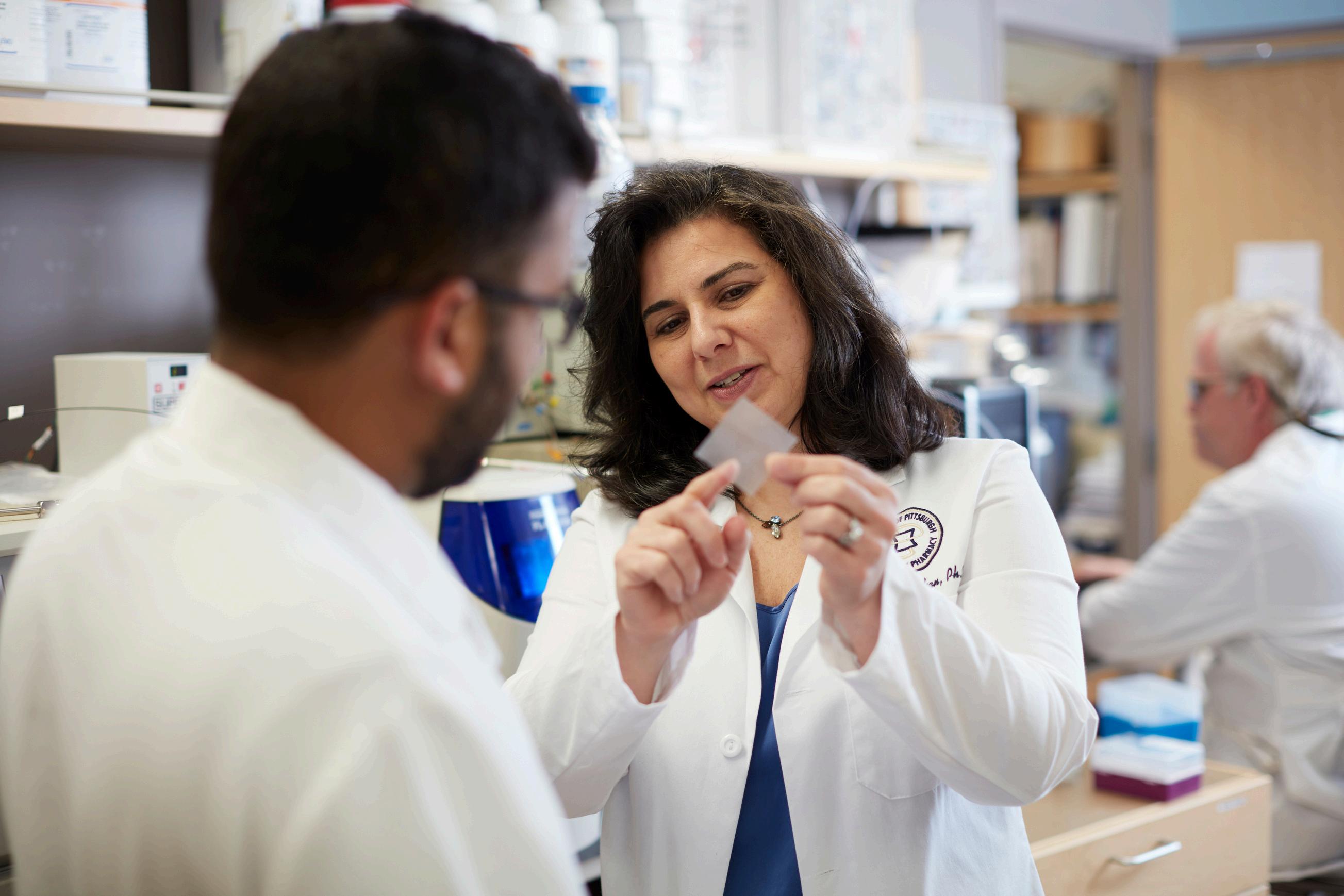


Assistant Professor; Department of Obstetrics, Gynecology & Reproductive Sciences and Department of Immunology





Assistant Professor; Department of Obstetrics, Gynecology & Reproductive Sciences and Department of Immunology
“Why do some women develop complications when we use mesh to augment surgical correction of pelvic floor disorders? Understanding this process is critical to preventing complications and developing novel options for women that allow them to get back to living their lives.”
GOAL: Improve current treatment paradigms of pelvic floor disorders by understanding the mechanisms behind vaginal mesh complications, pelvic floor muscle dysfunction, vaginal dysbiosis, and poor vaginal wound healing.
Polypropylene mesh is frequently used to decrease failure rates of prolapse repairs and treat stress urinary incontinence but is associated with a detrimentally robust foreign body response, resulting in rates of pain and exposure into the vagina in up to 10% of cases Using human tissue samples, mouse models, and innovative tissue-modeling systems, Dr Artsen aims to test the role of dysregulated wound healing in mesh complications and the therapeutic utility of extracellular matrix-associated molecules in vaginal healing with injury, aging and mesh placement, laying the foundation for early stage and advanced treatments with fewer complications and quicker recoveries.
Biocompatible Surgical Materials
Predicting & Preventing Mesh Complications
Personalized Treatment Strategies for Pelvic Floor Disorders
Biotech companies focused on advanced biomaterials
Medical device manufacturers
Sustainable product developers in the healthcare industry


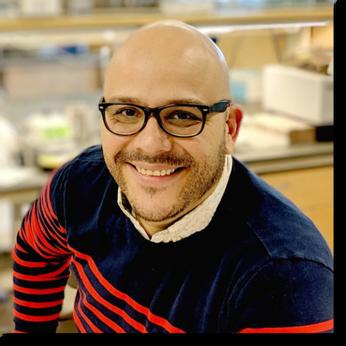
Assistant Professor, Department of Obstetrics, Gynecology & Reproductive Sciences
“Over half a girl’s eggs die before she is even born, and the number of healthy eggs continues to decrease throughout her life How can we reduce ovarian aging, and keep women’s eggs healthy throughout their lives, so they can continue having healthy babies and improve their healthspan and lifespan?”
GOAL: Develop new treatments that help women induce ovarian rejuvenation and extend the ovary’s lifespan.
Dr Brieño-Enriquez’s lab investigates the cellular and molecular mechanisms underlying gametogenesis in mammals, focusing on primordial germ cell development, meiotic regulation, oocyte quality, and reproductive aging. His work includes transgenerational epigenetic effects and environmental impacts on germline integrity and the use of bioreactors to extend ovarian function
Oogenesis in Adult Mammals: reproductive lifespan extension through findings in naked mole-rats
Germ Cell Protection: environmental resilience diagnostics and protective therapeutics
Ovarian rejuvenation and healthspan extension: new drugs to enhance and extend ovary lifespan, improving overall health



Professor of Medicine; Director, Ovarian Cancer Center of Excellence; Co‑Director, Women’s Cancer Research Center; Co Leader, Cancer Biology Program, UPMC Hillman Cancer Center
“I envision a world in which mothers do not die of ovarian cancer, but live to watch their children and grandchildren grow up. We are working towards this goal by developing ways to prevent the disease, better tests to diagnose the disease at a curable stage, and new treatments to increase cure rates for those who do get the disease.”
GOAL: Develop new therapies to prevent ovarian cancer deaths—helping mothers live longer.
Dr. Buckanovich’s laboratory studies a population of inherently therapy resistant ‘quiescent’ cancer cells which are a primary driver of disease recurrence and death. These quiescent cells can not only increase chemotherapy resistance in neighboring cancer cells but also inactivate anti-tumor immune responses with the combined effect to drive cancer recurrence and growth. His lab is developing new therapies to selectively target these quiescent cells to prevent ovarian cancer deaths helping mothers live longer to care for their families.
Quiescent cell targeted therapies to prevent chemotherapy resistance and recurrence
Humanized immune and stroma tumor model for preclinical drug testing
Biomarkers of response to immunotherapy in gynecologic cancers
Collaboration with pharma/biotech on novel ovarian cancer interventions

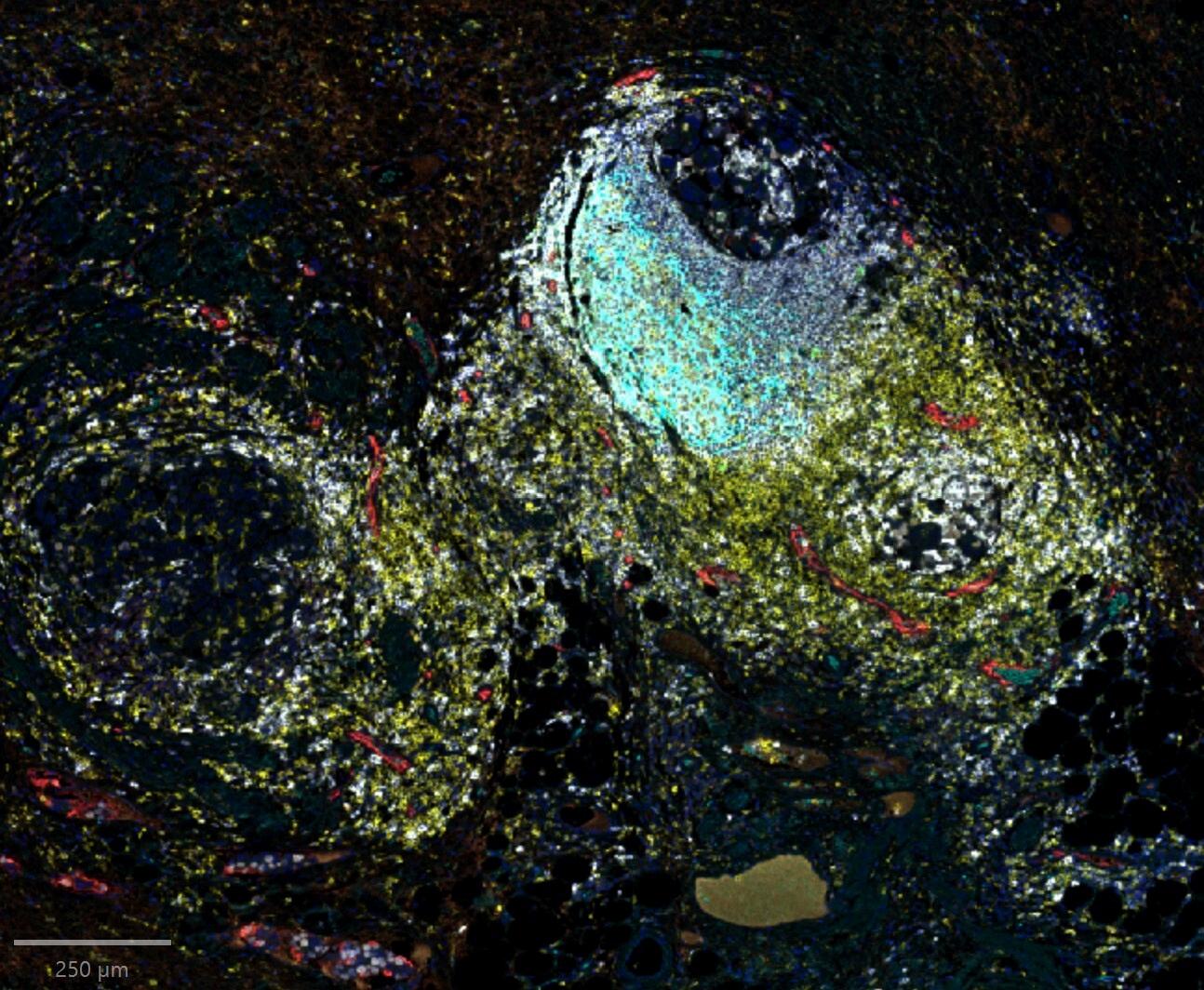

Assistant Professor, Department of Obstetrics, Gynecology & Reproductive Sciences, MageeWomens Research Institute; Member, Cancer Immunology & Immunotherapy Program, UPMC Hillman Cancer Center
“Only 10–15% of ovarian cancer patients respond to current immune checkpoint inhibitors. My research aims to develop novel immune therapies by reprogramming dysfunctional myeloid cells within the tumor microenvironment to enhance T and NK cell‑mediated tumor killing activities and suppress tumor growth.”
GOAL: Unlock new immunotherapies for ovarian cancer by retraining immune cells that suppress anti-tumor responses, helping to reboot the body’s own defenses—improving outcomes for women facing this challenging disease.
The Cascio Lab focuses on elucidating signaling interactions in the ovarian tumor microenvironment, particularly how stromal and tumor-secreted factors reprogram myeloid cell function Combining murine models with patient-derived samples, we aim to identify targets like EGFL6, TGFBI, and Periostin to boost immunotherapy efficacy We offer collaboration potential in developing precision immunotherapies targeting the tumor microenvironment including biologics against EGFL6, myeloid cell reprogramming agents, and combination strategies to overcome checkpoint blockade resistance Preclinical validation and biomarker development are ongoing
EGFL6-targeted therapeutics for ovarian cancer
Microbiome-modulated immunotherapy strategies
Myeloid-stromal signaling assay platforms for drug screening



Professor, Department of Obstetrics, Gynecology & Reproductive Sciences and the Department of Epidemiology, University of Pittsburgh
“Heart
disease is the leading killer of women, and it manifests differently in women compared to men. We are interested in what pregnancy can teach us about heart disease in women...
”
GOAL: Develop strategies that reduce maternal health disparities by understanding how pregnancy complications signal future cardiovascular risk.
Dr. Catov employs longitudinal cohort data and mechanistic studies to explore pregnancy complications as sentinel events for lifelong cardiovascular risk Her lab integrates epidemiology, biostatistics, genomics, and clinical trials to inform targeted prevention strategies.
1.Biomarker-driven risk algorithms for postpartum cardiovascular disease
2.Digital postpartum monitoring tools
3.Personalized intervention programs for women with hypertensive pregnancy disorders





Professor, Department of Obstetrics, Gynecology, & Reproductive Sciences, Division of Maternal-Fetal Medicine, University of Pittsburgh School of Medicine
Director, Center for Innovative Fetal Intervention, UPMC Magee-Womens Hospital
Co-Director, Fetal Diagnosis and Treatment Center, UPMC Magee-Womens Hospital
"Fetal therapy provides the opportunity to change a fetus’ developmental direction from a lifetime of disease, disability and suffering to that of health, wellness and productivity. That’s why we are committed to excellent patient care, research and education to move the field of fetal therapy forward."
GOAL: Correct or mitigate conditions in utero to improve health outcomes for newborns. His work focuses on innovative treatments that can change the course of a fetus' development, reducing the risk of lifelong disabilities.
Dr Emery's research encompasses the development and implementation of fetal interventions, including ventriculoamniotic shunting for aqueductal stenosis and prenatal diagnostic techniques He actively participates in multi-center studies through NAFTNet, contributing to the advancement of fetal therapy protocols
Ventriculoamniotic shunting for fetal aqueductal stenosis
Prenatal diagnosis of aqueductal stenosis
Biotech companies focused on advanced biomaterials
Medical device manufacturers
Sustainable product developers in the healthcare industry



Richard Sweet Professor of Reproductive Infectious Disease and Vice-Chair for Faculty Affairs, University of Pittsburgh School of Medicine, Departments of Obstetrics, Gynecology and Reproductive Sciences and Microbiology and Molecular Genetics, University of Pittsburgh School of Medicine Director, Reproductive Infectious Disease Research, UPMC MageeWomens Hospital
“We
believe that women’s health research should be first and foremost, instead of an afterthought. I dream of a time that young women have the same power and control of their lives as young men do.”
GOAL: Develop effective prevention strategies and improve health outcomes for women worldwide, particularly in relation to sexually transmitted infections and HIV.
Dr Hillier's work presents opportunities for collaboration in the development of novel HIV prevention products, including topical microbicides and antiretroviral drug formulations Her research also offers insights into the impact of vaginal products on the microbiome and immune responses, which are crucial for product development and safety assessments
1 Development of novel HIV prevention products, including topical microbicides and antiretroviral drug formulations
2.Advancements in understanding the vaginal microbiome and its impact on reproductive health
3.Innovative approaches to evaluating the safety and efficacy of vaginal health products



Assistant Professor, Department of Obstetrics, Gynecology and Reproductive Sciences; Department of Computational and Systems Biology
"Could it be that our biological signals— shaped by our experiences—are somehow embedded and transmitted to future generations? We think that this transmission might influence everything from health and resilience to the risk of disease."
GOAL: By defining how diet, nutrition, and the microbiome safeguard reproductive health, Dr. Jašarević’s work aims to deliver simple, scalable strategies to extend the reproductive lifespan and enhance lifelong health.
Focusing on the intersection of microbiome science and reproductive medicine, his research demonstrates how microbial metabolites influence the aging of reproductive tissues. By maintaining the quality of germ cells, this work outlines a roadmap for healthier offspring, connecting maternal health to the well-being of the next generation The insights gained will lead to new opportunities for preventive, food-based interventions that decrease the burden of chronic disease and align with current national priorities, emphasizing a unified approach to prevention over treatment.
Development of microbiome-based diagnostics to detect early signs of reproductive aging and aging-related chronic disease.
Creation of dietary and microbial-informed interventions to preserve fertility and delay menopause
Discovery of novel microbial-derived signals that link reproductive longevity to overall healthspan

PubMed • jasarevice@mwri magee edu


Professor, Department of Obstetrics, Gynecology & Reproductive Sciences, University of Pittsburgh School of Medicine; Vice Chair of Translational Research Development in Women’s Health, MageeWomens Research Institute
“We apply lessons from acute viral infections to teach the immune system how to fight cancer and chronic infections, and lessons from cancer to suppress the excessive immunity in chronic inflammation and autoimmunity.”
GOAL: Incorporate immunotherapy as a standard element of comprehensive care for patients with cancer and other chronic diseases, by enhancing its effectiveness and feasibility, and reducing the financial burden and side effects
Dr Kalinski’s research evaluates the interplay between the activators and modulators of innate immunity (Interferons, TLR-Ligands, CTL/NKattracting chemokines) and suppressive mediators of chronic inflammation (prostanoids, suppressive cytokines, checkpoint molecules, Treg/MDSC-attractants) in the regulation of immunity against cancer, infections and autoimmunity Two major research areas of the Kalinski Lab and his Clinical Partners are:
1) Cell-based therapies of cancer with focus on dendritic cell (DC) therapies (DC vaccines, intratumoral live adjuvants) and adoptive cell therapies (ACT) using DC-instructed T cells which recognition of cancer cells via TCR and NKRs; and 2) Therapeutic reprograming of tumor microenvironments (TME) to enhance local infiltration of immune cells and enhance the therapeutic effectiveness of immune checkpoint inhibitors (ICI), ACT and other cancer treatments
Dr Kalinski has authored over 160 scientific publications and developed and secured regulatory approvals for 16 INDs and partnered with multiple clinical faculty in the development of multiple investigator-sponsored clinical trials in breast- and ovarian cancers, as well as melanoma, brain, prostate and colon cancers He has extensive experience building and leading Team Science programs and collaborative projects within P01s (ovarian, breast, melanoma, colon, SPOREs (ovarian and melanoma), and MPI R01s and DoD grants (brain-metastatic breast cancer) involving multiple academic institutions (University of Pittsburgh, Roswell Park Cancer Institute, Moffitt Cancer Center, Mt Sinai Icahn School of Medicine and the University of Virginia
Adjuvants to selectively enhance CTL infiltration into tumor microenvironments and enhance antitumor efficacy of T cell therapies and immune checkpoint inhibitors, Cell therapies involving dendritic cells NK cells and/or T cells
Cross-talk between chemo and radiotherapy, cell stress, immunogenic cell death and immunotherapy
Alternative platforms of cGMP cell generation to reduce costs and enhance the feasibility of cell-based therapies, Artificial lymph nodes, Drug delivery tools and cell delivery systems
Ex vivo tissue explant cultures to test new therapies (and their combinations) and predict their efficacy in specific diseases, to reduce the need for animal studies
Image analysis and bio-informatic tools to predict the efficacy of immune therapies, reduce the need for animal studies and optimize the design of clinical trials

Vaccine for activating helper function of CD8.+ T cells (US Patent: 7,655,216)
Mature Type-1 Polarized Dendritic Cells with Enhanced IL-12 Production and Methods of Serum-free Production and Use (US Patent No. 7,972,847)
Platform of Dendritic Cell (DC)-based vaccination (US Patent No. 8,691,570)
Additional patent applications pending


Assistant Professor, Department of Bioengineering, University of Pittsburgh
Current prolapse meshes are simply hernia meshes repurposed for the repair of pelvic organ prolapse. My research aims to develop a novel device that is specifically tailored for prolapse repair and one that is based on scientific evidence.”
GOAL: Improve women's health by developing innovative treatments for pelvic floor disorders, such as pelvic organ prolapse.
Dr. Knight's translational research bridges bioengineering and clinical application, focusing on the development of next-generation biomaterials for pelvic floor reconstruction. Her work offers potential collaborations in the design and testing of innovative medical devices aimed at enhancing women's health care.
Development of novel biomaterials for pelvic floor repair
Design and testing of nextgeneration surgical meshes
Collaborations in translational research for women's health devices
Biotech companies focused on advanced biomaterials
Medical device manufacturers
Sustainable product developers in the healthcare industry



Assistant Professor, Department of Obstetrics, Gynecology & Reproductive Sciences; OB GYN Resident Research Director; Basic Science Accreditation & Continuous Quality Improvement Faculty Lead, Magee-Womens Research Institute
“I
am a clinician with expertise in maternal‑fetal medicine and reproductive infectious diseases. I work with patients with high‑risk pregnancies and as a clinician am frustrated by the lack of diagnostic prediction tools and treatment options for my patients.”
GOAL: Develop better prediction tools and treatments that protect mothers and infants throughout pregnancy.
Dr Megli deploys multidisciplinary methods including immunophenotyping, tissue explant models, and clinical cohort analysis to investigate innate immune dynamics at the maternal-fetal interface Her work addresses molecular mechanisms of inflammasome activation, macrophage specialization, and pathogen resistance to inform diagnostics and interventions in reproductive infectious diseases and high-risk pregnancy Her projects offer translational opportunities in diagnostics and therapeutics focused on pregnancy-specific immune modulation and infection pathways Her team aims to partner with biotech firms developing point-of-care diagnostics, immunomodulatory drugs, or prenatal monitoring technologies to safeguard maternal and neonatal health. They are currently collaborating with several bioengineers to develop novel in vitro models of the maternal-fetal interface and understand immune regulation
Diagnostic biomarkers for infection risk in pregnancy and for neonatal health
Therapeutics targeting placental immune pathways
Immune profiling platforms for prenatal care
Molecular immune based proteomics
Bioengineering models of the maternal-fetal interface
Collaborative clinical trial networks integrating infection and maternal-fetal medicine expertise

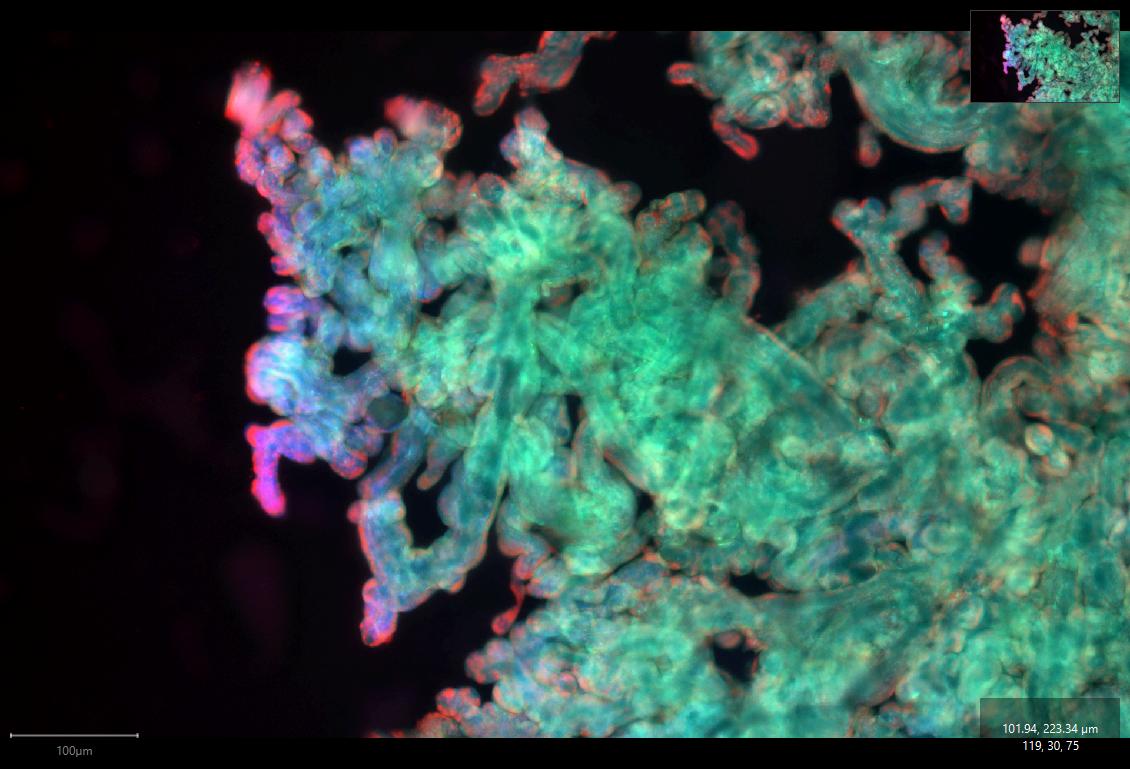

Interim Executive Director, MageeWomens Research Institute
Professor, Department of Obstetrics, Gynecology & Reproductive Sciences, University of Pittsburgh
Division Director, Urogynecology & Reconstructive Pelvic Surgery, UPMC Magee-Womens Hospital
Secondary Appointments: Department of Bioengineering, University of Pittsburgh
McGowan Institute of Regenerative Medicine, University of Pittsburgh
Clinical and Translational Science Institute, University of Pittsburgh
Adjunct Professor of Bioengineering, Carnegie Mellon University
Damage to the muscles and tissues that provide support to the pelvic organs at the time of vaginal birth can lead to debilitating conditions across the female lifespan. Unfortunately, scientifically based therapies to treat these disorders are sparse We aim to improve the lives of women by improving the efficacy of current treatments and developing novel therapies specifically targeted at repairing underlying injury."
GOAL: Understand and treat pelvic floor disorders that affect many women, such as pelvic organ prolapse and urinary incontinence. By developing better materials and surgical techniques, her work aims to improve the quality of life for women experiencing these conditions.
Dr Moalli's research offers significant opportunities for industry collaboration in developing and testing innovative biomaterials and medical devices for pelvic floor reconstruction Her team's expertise in translational research and clinical application positions them as valuable partners in bringing new solutions to market
Development of a vaginal hydrogel used to treat genitourinary syndrome of menopause or in vaginal biofabrication
Development of biocompatible, elastomeric materials tailored for pelvic floor surgeries
Design and testing of novel surgical devices for improved outcomes in urogynecologic procedures
Vaginal biofabrication using living grafts and stem cell technologies

Biotech companies focused on advanced biomaterials
Medical device manufacturers
Sustainable product developers in the healthcare industry


Director, Fertility Preservation Program of Pittsburgh
Director, UPMC Magee Center for Reproduction and Transplantation
Director, Genome Editing, Transgenic and Virus Core Facility, Magee-Womens
Research Institute
Microbiology & Molecular Genetics, University of Pittsburgh
Developmental Biology, University of Pittsburgh
Member, Hillman Cancer Center
mes we talk about ‘how many people in d are really impacted by infertility.’ For only person that matters is the one that walks in the door today and desperately wants to have a biological child.”
GOAL: Translate laboratory discoveries into clinical applications for infertility diagnosis, prevention, and treatment.
Dr. Orwig's research provides opportunities for collaboration in developing novel approaches to preserve fertility and next generation technologies to restore fertility in individuals with the most difficult infertility diagnoses (no eggs, no sperm) His expertise in stem cell biology and reproductive sciences offers a foundation for advancing clinical applications and improving patient outcomes in reproductive health
Development of advanced fertility preservation techniques for prepubertal patients
Innovating next generation technologies to treat infertility
Advancement of gene editing technologies for infertility and congenital diseases
Creation of transgenic animal models for studying infertility mechanisms

PCT/US2018/043948, Gene Therapy for Treatment of Infertility, filed July 26, 2018
PCT/US2019/065006, Ultrasound-guided rete testis injection/aspiration device, filed December 6, 2019. Granted: 4/22/2025, US20210369783A1.
• orwigke@upmc edu


Associate Professor of Pharmaceutical Sciences, University of Pittsburgh School of Pharmacy
“Advancing health innovations for women requires a thoughtful intersection of cutting-edge research and practical implementation We believe it is essential to develop drug delivery solutions that address the unique biological challenges faced by women, while ensuring these innovations remain affordable, scalable, and rapidly accessible so that their benefits reach women efficiently and sustainably”
GOAL: We aim to overcome mucosal barriers to deliver drugs effectively for women's health, using innovative drug delivery systems, manufacturing technologies, and rapid drug monitoring methods.
Dr. Patel’s research presents valuable opportunities for collaboration in the design of advanced drug delivery systems, including films, microparticles, and nanoscale technologies, as well as in the development of analytical methodologies for evaluating pharmaceutical performance With extensive experience in translating drug products from laboratory research to clinical application, his work offers broad potential for partnership across pharmaceutical development, with a particular emphasis on delivery through the female genital tract
Development of novel drug delivery approaches designed to bypass biological barriers within the female reproductive tract
Implementation of advanced manufacturing technologies such as hot-melt extrusion and 3D-printing, to produce scalable, costeffective, and potentially personalized pharmaceutical products
Utilization and development of analytical tools such as near-infrared spectroscopy for applications including real-time therapeutic drug monitoring and rapid assessment of pharmaceutical product quality



Professor of Obstetrics, Gynecology & Reproductive Sciences, University of Pittsburgh
Professor of Human Genetics, University of Pittsburgh
“I am focused on developing blood tests, and other non-invasive methods, for the early detection and analysis of complex human diseases. My goal is to reduce the burden and impact of disease through earlier and more accurate diagnosis that informs personalized approaches to treatment.”
GOAL: Catch diseases early, leading to better treatment outcomes and improved health for mothers and babies.
Dr. Peters' research offers opportunities for collaboration in developing non-invasive diagnostic tools for complex diseases. His work in liquid biopsy and epigenomic analysis provides a foundation for advancing early detection technologies in clinical settings.
Development of non-invasive tests that cross a spectrum of human diseases with emphasis on pregnancy, benign gynecology, neonatology, and pulmonology
Advancement of liquid biopsy technologies for early disease detection
Collaboration with industry partners to translate research into clinical applications
Development and advancement of novel computational and wet lab methods in translational genomics

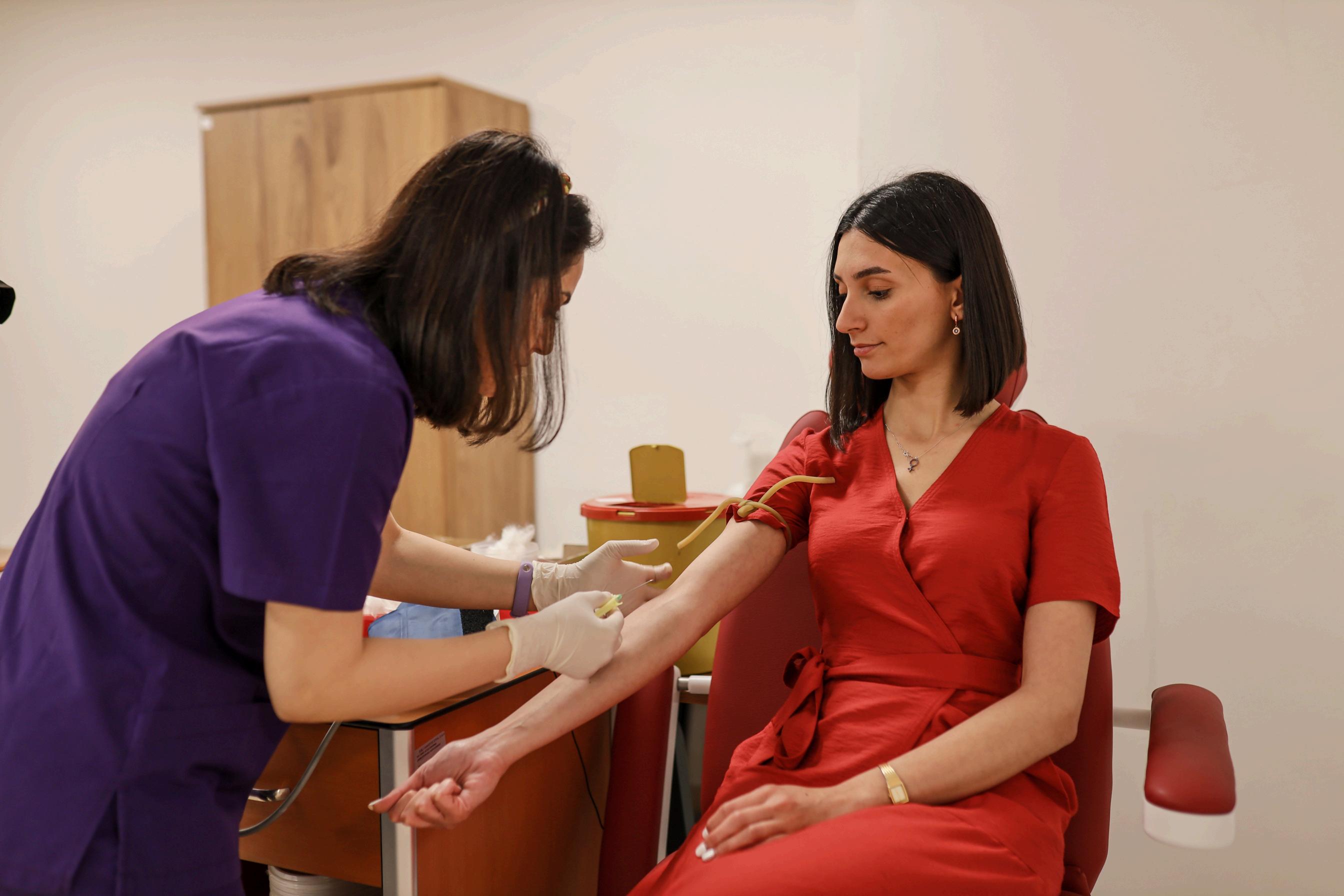

Professor, Department of Pharmaceutical Sciences, School of Pharmacy, University of Pittsburgh
Professor, Department of Obstetrics, Gynecology & Reproductive Sciences, School of Medicine, University of Pittsburgh
Faculty, Clinical and Translational Science Institute, University of Pittsburgh
“Considering ‘what women want and will use’ is critical in designing effective pharmaceutical products for women. Our lab is developing innovative, safe, effective, acceptable, and affordable drug delivery systems, which meet the varied and changing needs of women across the world.”
GOAL: Transforming women’s and global health through pharmaceutical innovation.
Dr Rohan's lab specializes in the design and development of drug delivery systems tailored for women's health Research areas include drug product development for prevention of infectious diseases, contraception, and other women's health issues Her work has led to innovative delivery systems for gynecologic oncology applications The lab employs advanced in vitro and ex vivo models to study drug release and biodistribution in the female reproductive tract
Design of pharmaceutical products for a range of therapeutic areas for small molecule, biologics, probiotics
Development of novel formulations for prevention of infectious disease and contraception
Design of drug delivery systems for women’s health & gynecologic oncology applications.
Creation of in vitro models to predict in vivo drug release in the female reproductive tract
Development of novel analytical tools to support drug product development

10,501,507 issued 12/2019
11,339,195 issued 5/2022
12,384,820 issued 8/2025
11,672,757 issued 6/2023
11,793,765 issued 10/2023
PCT/US2021/033009
PCT/IB2022/058289
PCT/IB2022/057170
PCT/US2023/023521
PCT/IB2025/051327


Professor, Department of Obstetrics, Gynecology, and Reproductive Sciences, University of Pittsburgh School of Medicine
Executive Vice Chair, Obstetrical Services, University of Pittsburgh School of Medicine
Director, Clinical Innovation for the Women’s Health Service Line, UPMC
“We are working to advance scientific knowledge about how to make pregnancy safer for women and babies, translating our discoveries into improved health care for mothers and their babies.”
GOAL: Develop better ways to make pregnancy and postpartum care safer for moms
and babies.
Dr Simhan’s work creates unique opportunities for collaboration at the intersection of research, clinical innovation, and women’s health A robust clinical research infrastructure allows his team to recruit and retain pregnant patients across diverse trials and cohorts spanning conditions from cardiovascular disease to mental health. Through his leadership of the Hatch program, a clinical innovation platform at UPMC, new models of care are developed and tested at scale, including initiatives in virtual care, postpartum hypertension monitoring, doula support, and population health approaches to closing care gaps. In parallel, his longitudinal birth cohort studies follow mothers and children from pregnancy through the postpartum years, advancing understanding of how maternal health shapes longterm outcomes for both women and their offspring
Development of new clinical practices to improve obstetric care Advancements in the understanding of preterm birth through genetic and environmental research Innovations in patient care delivery through the Hatch program Contact



